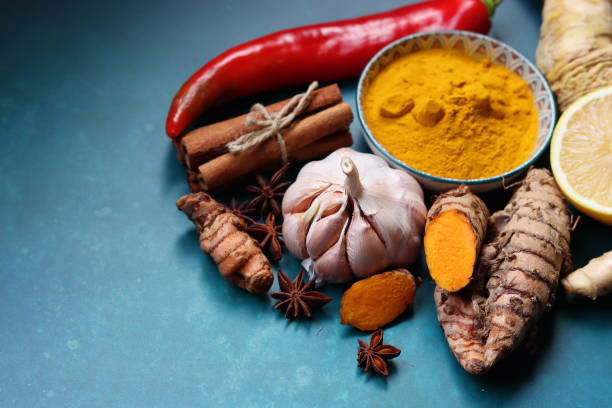Inflammation is the body’s natural response to damage, infection, and toxic invaders. However, when inflammation persists for an extended period of time—often caused by a poor diet, stress, pollution, or a lack of exercise—it can gradually destroy your tissues and organs. Chronic inflammation has been related to health problems like heart disease, diabetes, arthritis, and even some malignancies. What is the good news? Your regular diet can have a significant impact on minimizing or preventing this type of inflammation.
Let’s take a deep dive into the realm of anti-inflammatory foods, which you should have on your plate every day for improved health.
What is Inflammation, and Why is it Important?
Inflammation is a normal process in which your immune system reacts to damage, infection, or irritation. When this occurs, your body produces molecules such as cytokines and white blood cells to help protect and repair the afflicted area. There are two kinds of inflammation:
- Acute inflammation is a short-term response to injury or infection, such as a cut or fever.
- Chronic inflammation is a long-term, low-grade inflammation that quietly damages the body over time.
How Food Affects Inflammation
Certain foods either increase or reduce inflammation. Pro-inflammatory meals, such as refined carbs, fried foods, red meat, and sugary beverages, can raise inflammation levels in the body.
Anti-inflammatory foods, on the other hand, are high in antioxidants, vitamins, minerals, and vital fatty acids, all of which help to protect cells, control immune responses, and reduce inflammation.
Anti-Inflammatory Foods to Eat Every Day
Here’s a breakdown of nutrient-dense foods you should incorporate into your regular diet to naturally combat inflammation:
1. Leafy green vegetables
Vegetables such as spinach, kale, collard greens, and broccoli are high in vitamins A, C, and K, which help fight oxidative stress. Their strong antioxidant and polyphenol content helps reduce inflammation throughout the body.
2. Fatty fish
Omega-3-rich seafood such as salmon, sardines, mackerel, and trout have potent anti-inflammatory properties. These good fats inhibit the synthesis of inflammatory compounds such as prostaglandins and cytokines.
3. Berries
Blueberries, strawberries, raspberries, and blackberries are antioxidant-rich. They include high levels of anthocyanins, which have been shown to reduce inflammation, protect cells, and boost immunity.
4. Turmeric
This golden spice includes curcumin, a powerful anti-inflammatory molecule that has been shown to relieve joint discomfort, improve heart health, and alleviate the symptoms of inflammatory disorders.
MUST READ;Why is Iron Deficiency More Common in Women (and How to Prevent It)
5. Ginger
Ginger’s main constituents, gingerols and shogaols, reduce inflammation, particularly in those with osteoarthritis, muscle discomfort, and dyspepsia.
6. Nuts and seeds
Walnuts, almonds, flaxseeds, chia seeds, and sunflower seeds have high levels of beneficial fats, protein, and antioxidants. They help to reduce C-reactive protein (CRP), a significant marker of inflammation in the body.
7. Olive Oil
Extra virgin olive oil, a mainstay in Mediterranean diets, includes oleocanthal, a chemical with similar anti-inflammatory properties as ibuprofen.
8. Garlic
Garlic contains sulfur-containing chemicals such as allicin, which improves immunological function and reduces inflammation.
Foods to Avoid for Effective Inflammation Control
While including anti-inflammatory items in your diet, it’s also vital to restrict certain pro-inflammatory culprits:
- Processed meats (sausages and bacon)
- Sugary beverages (soda and bottled juices)
- Refined carbohydrates (white bread and pastries)
- Deep-fried meals (such as fries and doughnuts).
- Excessive drinking
- Margarine and several marketed snacks contain artificial trans fats.
In conclusion, Inflammation is not necessarily harmful; it is your body’s natural defence mechanism. However, if it remains unnecessarily, it might silently cause major health concerns. The things you eat each day have the ability to either soothe or fuel this invisible fire.
Include nutrient-rich, anti-inflammatory foods like leafy greens, fatty fish, berries, and spices like turmeric and ginger in your daily diet to naturally support your body’s healing processes, avoid disease, and feel better overall. Small, persistent dietary modifications can have a significant impact in the long run.


